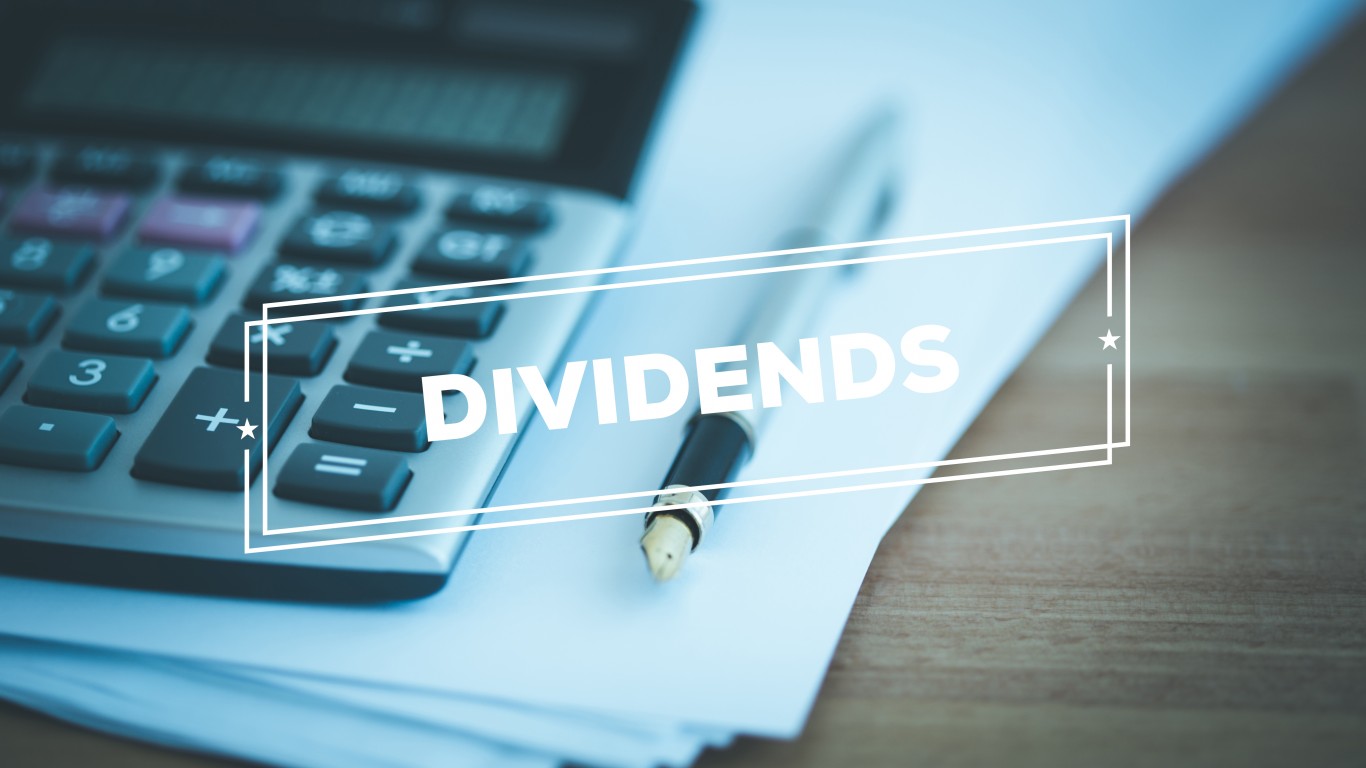Companies and Brands
Has Coca-Cola Lost Its Defensive Stock to Buy Status for Dividend Investors?

Published:
Last Updated:

In times of trouble, investors still have to keep their money somewhere. Holding cash pays literally zero these days in a no-interest-rate policy, so investors have looked to defensive dividend paying stocks that are supposed to be at least somewhat immune to recessions and slow-downs. This is a climate that would seem to be perfect for The Coca-Cola Co. (NYSE: KO).
Not so fast. As the public found out in the Great Recession a decade ago, Coca-Cola is having a hard time selling as much soda and beverages. 24/7 Wall St. is not conducting yet another earnings review. This is a review of its entire classification of being safe and defensive for income investors at current valuations and in the current economic landscape.
It turns out that having so many venues and events closed and people staying home means less spending on the beverages that Coca-Cola and other sellers are used to. When Coca-Cola announced its earnings report on Tuesday morning, the global beverage giant indicated that its global sales volume was down a sharp 25% since the start of April due to COVID-19 pandemic orders to stay in place and to stay in lock-down at home.
Coca-Cola also warned that consumer spending should not be expected to bounce back immediately as the United States and as other countries begin their reopening efforts.
Coca-Cola had already warned about its China operations. Its Coke plants are back up and running and its corporate employees have returned to their offices in Shanghai. That said, there are still limits on crowds and Coca-Cola is not alone suggesting that consumption remains lower than it was a year ago. Some places, such as Tokyo, are also implementing a second round of COVID-19 policy restrictions.
The reasons may be very different between 2020 and 2010, but the outcome is the same a decade later. Current CEO James Quincey said:
We may be at the end of the big global lockdown, but we are still a long way from the new normal.
Back in January of 2010, when the recession was ending and the recovery was just beginning, then-CEO Muhtar Kent announced at the time that there was a reset of consumers in North America, Japan, Western Europe, and that consumption had shifted more to home-based consumption rather than on-the-go consumption. Sound familiar?
Back in 2010, Coca-Cola’s goal was to double its revenues by 2020. The company’s revenues may be harder to calculate based on mergers, new brands and unit consolidation of regions and bottling facilities, but Coca-Cola’s full-year 2010 revenues were $35.1 billion. In 2019, the total revenue was almost $37.3 billion for the year.
It is becoming increasingly difficult even for traditional defensive companies like Coca-Cola to make quarterly and full-year assumptions with so much of the world economy in lock-down. This is destroying attempts by analysts investors alike to look for patches of safety from a falling stock market.
With normalized earnings of $2.00 to $2.25 per share in the current years, Coca-Cola would still be valued at just above 20-times expected earnings with a 1% drop in quarterly revenues in the first quarter of 2020. We will leave it up to you to decide if that is a fair earnings multiple or not.
While Coca-Cola shares closed down 2.5% at $45.38, it is still up from a selling panic low of $36.27 and is still down from a peak of $60.13. Its dividend yield is 3.6% and the Refinitiv consensus analyst price target is $53.26.
Retirement planning doesn’t have to feel overwhelming. The key is finding professional guidance—and we’ve made it easier than ever for you to connect with the right financial advisor for your unique needs.
Here’s how it works:
1️ Answer a Few Simple Questions
Tell us a bit about your goals and preferences—it only takes a few minutes!
2️ Get Your Top Advisor Matches
This tool matches you with qualified advisors who specialize in helping people like you achieve financial success.
3️ Choose Your Best Fit
Review their profiles, schedule an introductory meeting, and select the advisor who feels right for you.
Why wait? Start building the retirement you’ve always dreamed of. Click here to get started today!
Thank you for reading! Have some feedback for us?
Contact the 24/7 Wall St. editorial team.